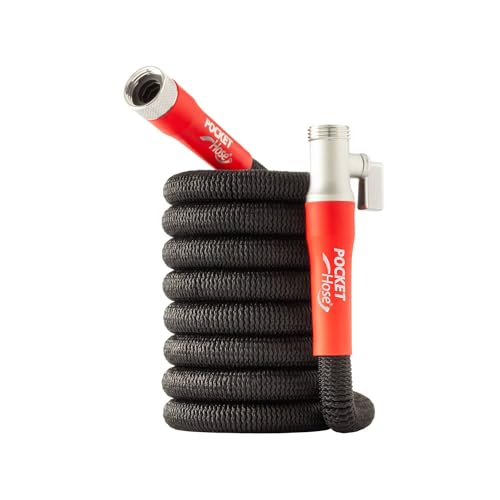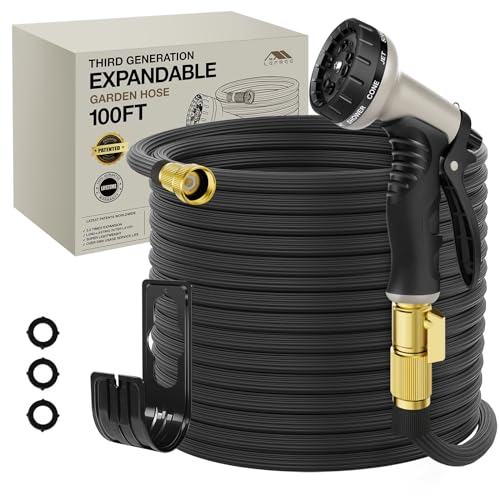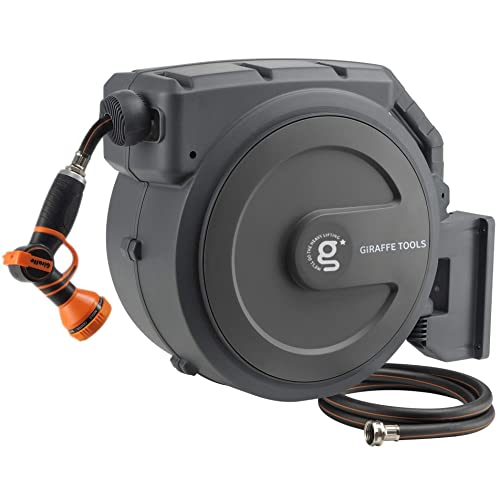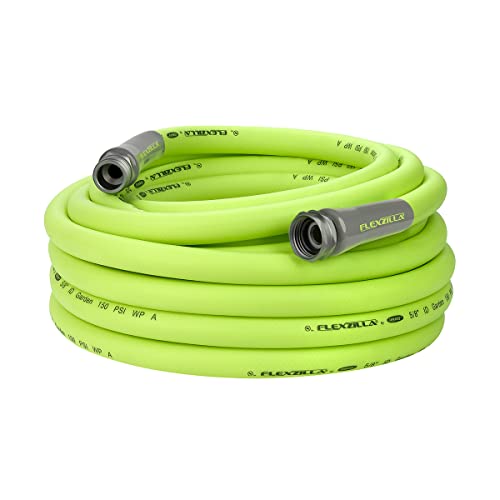Are expandable garden hoses actually worth it? After years of testing, I would advise against this piece of gardening kit
Expandable hoses can work for small city gardens, but they have significant drawbacks
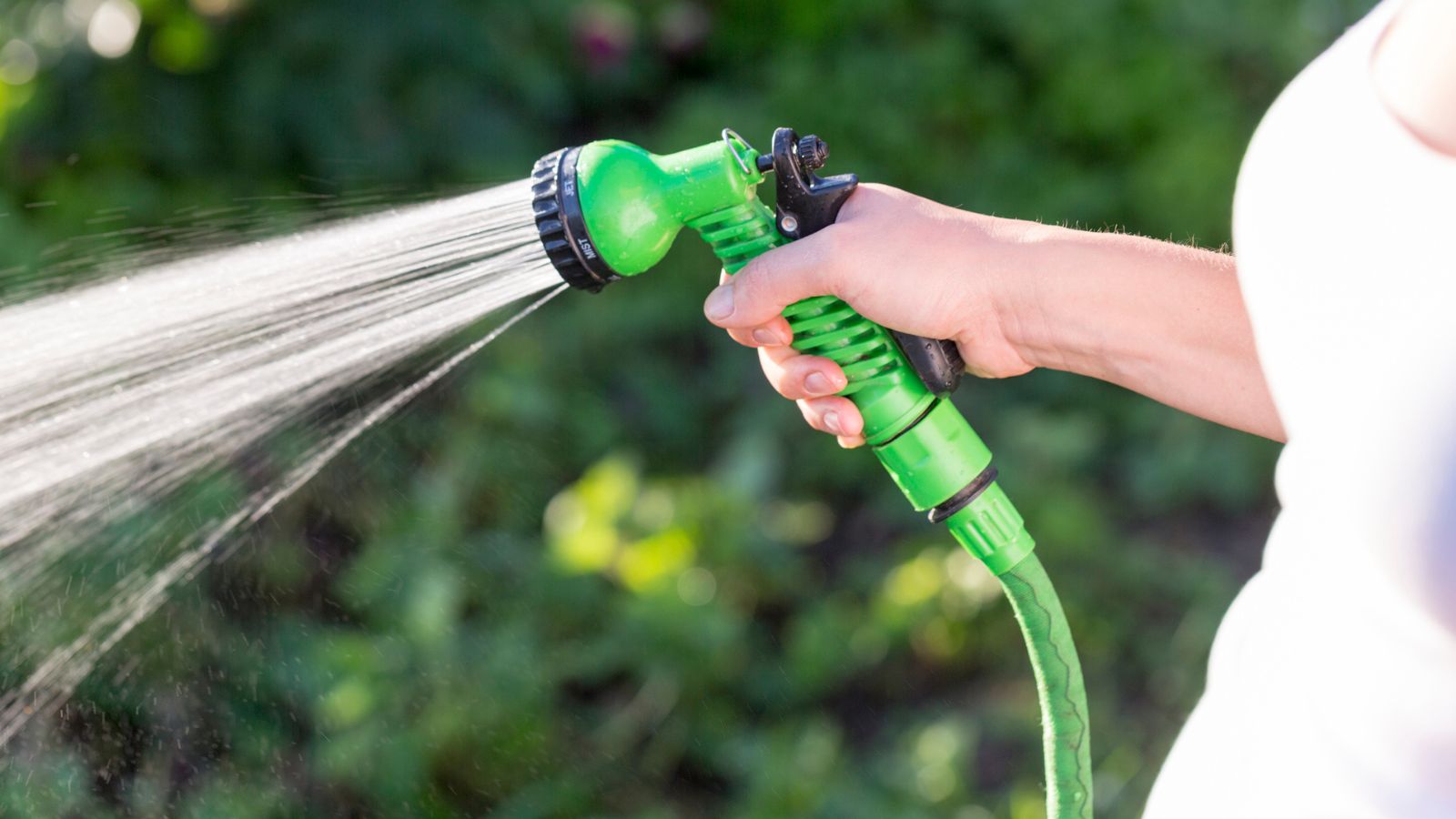

A good garden hose is invaluable. It's a garden essential, crucial for watering flowerbeds and ensuring a healthy lawn.
I've been a product tester for years, and I'm seeing more and more expandable hoses coming onto the market. You've likely seen them on infomercials; miracle hoses that expand to hundreds of feet and shrink down to nothing.
I've tested plenty of these in my career and found that while they're great for small homes, you might be better off with a traditional garden hose.
What is an expandable hose?
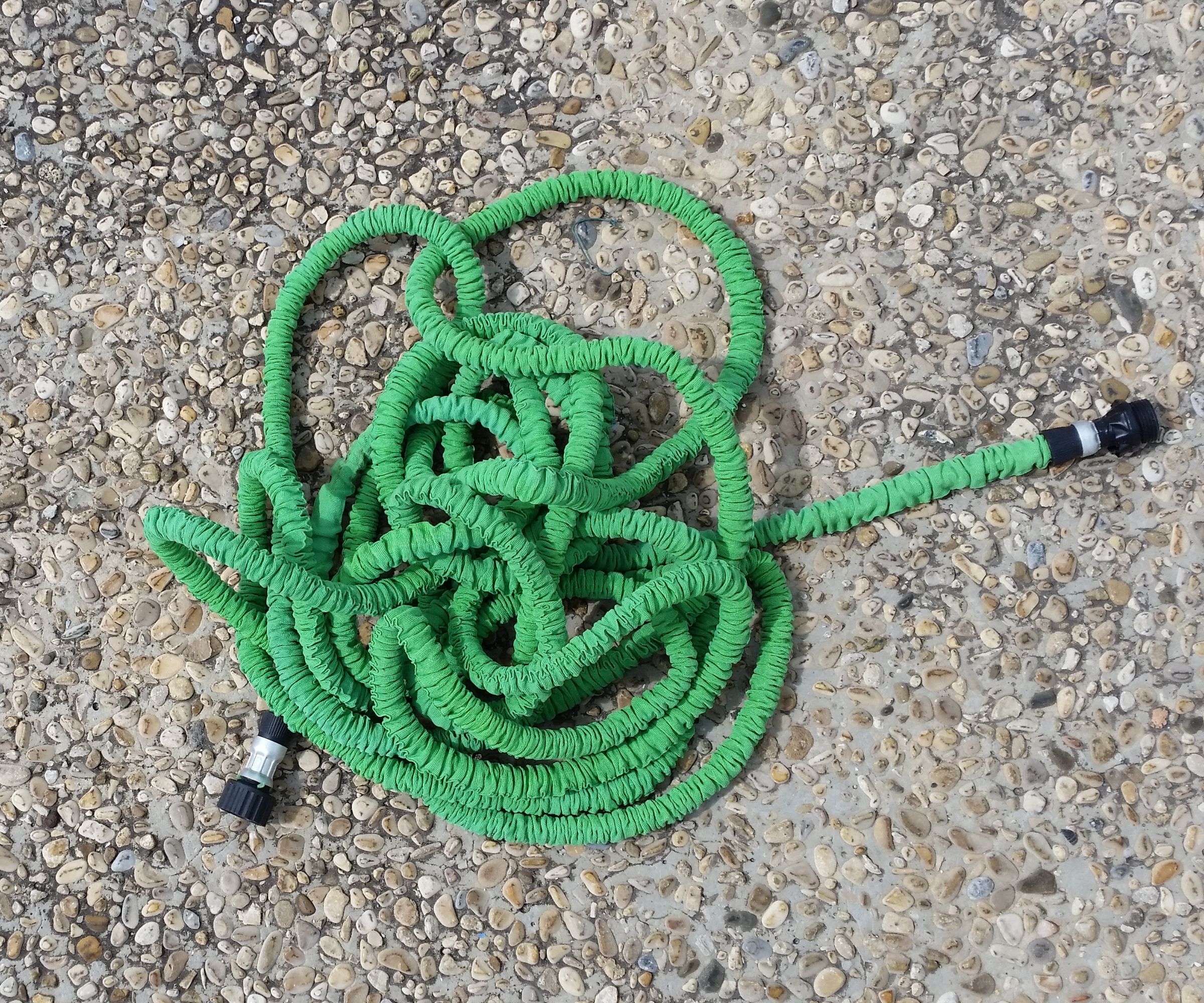
Unlike traditional hoses, expandable hoses - unsurprisingly - expand. Traditional hoses use a soft inner tube surrounded by hard, durable rubber that can stand up to weathering and being dragged across the ground.
Expandable hoses use that same inner tube, but cover it with weatherproof fabric. This means that the inner tube expands and contracts depending on water pressure. This means that an expandable hose can shrink three times smaller than its full length. The idea is that this can save you a little space.
Expandable garden hose benefits
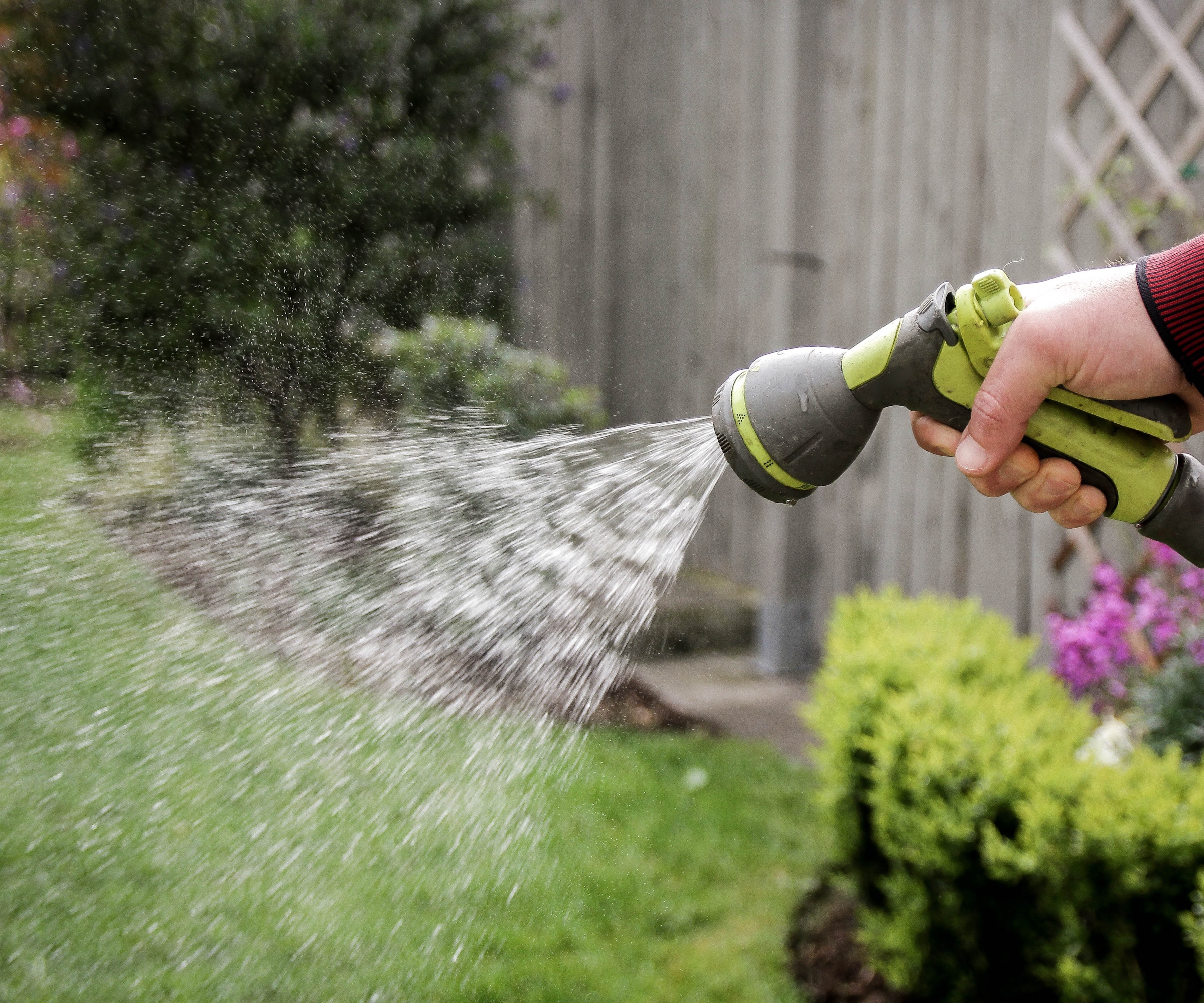
Expandable hoses are perfect for city gardens and small plots. It can't be overstated how much room an expandable hose can save. It takes up less than half the space of a hose reel, so it's great if you have a little herb garden but don't need yards and yards of hose. They're great if you're really hot on garden design because they're easy to pack up and hide out of sight.
Expandable hoses also save you from my least favorite garden chore - winding up a hose. Growing up, I used to love gardening with my parents, but they had a long, thin garden, so most summer days I'd have the monotonous task of winding 100 feet of hose up onto a reel. This isn't a problem with an expandable hose, because it expands and contracts by itself.
Because they're so pressurized, unlike a traditional hose, expandable hoses never kink. With an expandable hose, you never have the annoying moment when your water stutters to a stop.
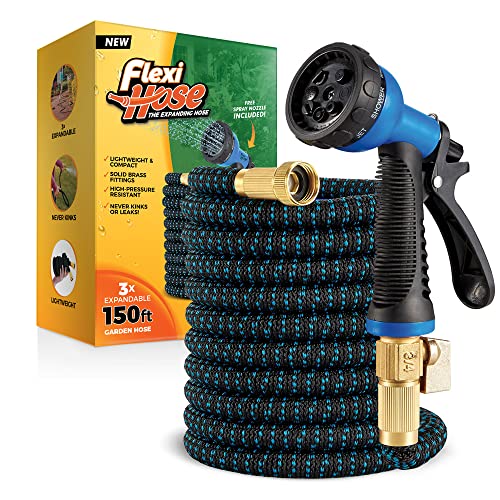
From my tests, I think Flexi Hose is your best bet. This hose is long and comes with a nozzle included by standard, as well as brass fittings. When I put it to the test, it was among the most durable. I've tried other brands like Xhose too, but they don't always include watering guns, so I think this is about as good as it gets.
Expandable garden hose drawbacks
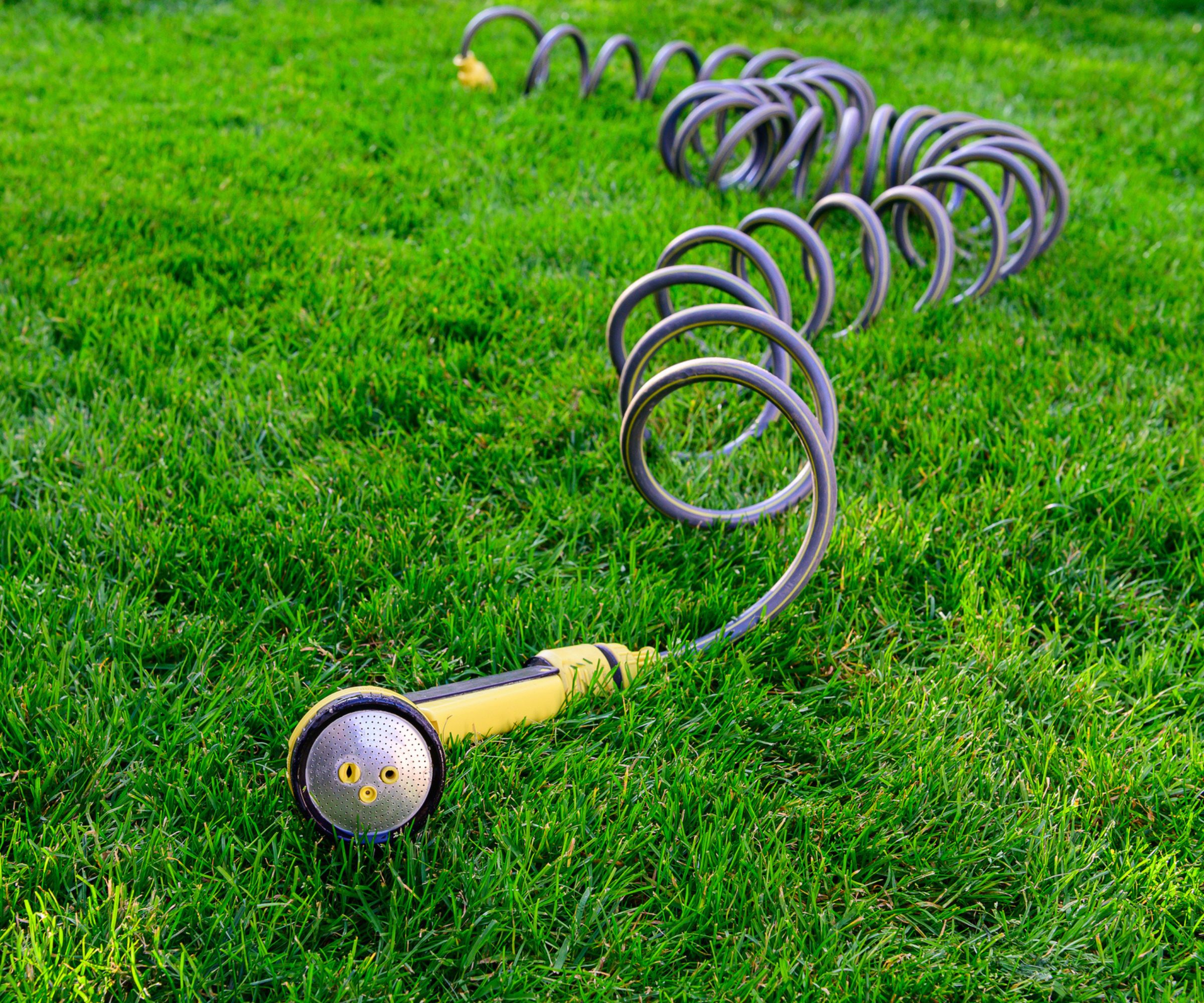
However, my experience testing these has taught me that while they're excellent in small spaces, they have significant issues for larger homes.
The first issue is that the range on an expandable hose is always a couple of feet shorter than advertised. Because they're expandable, they become taut once filled with water. However, this tightening limits their mobility and range. I've measured lots of expandable hoses once full of water and they always come up a few feet short. I'd need to do more tests to establish it as a fact, but my experience is that this effect is worse the longer a hose is. The result is that you can feel the hose straining before you even reach the supposed limit of its range. I last tested this type of hose in an old Victorian house with a rickety faucet, and I always worried about accidentally ripping it out of the wall.
On top of that, these hoses don't only expand in length, but also in width, which means they feel a lot heavier in the hand than typical garden hoses. It makes them feel a little cumbersome. I'm notoriously clumsy, so take it with a pinch of salt, but I found myself banging expandable hoses into flowerpots and statues and furniture every time I used them. Expandable hoses also expand and contract a little as you use them, so you can take all the care in the world only to find that a segment of the hose has twitched behind you and knocked into something. This is especially true of coil garden hoses like this at Amazon, which are like dragging an old-school telephone cord around the yard.
The expansion is also awkward. It looks pretty sci-fi to watch an expandable hose expand to its full length, but you need to clear some room. They thrash around unpredictably as they get to full length, so you must move delicate flower pots out of the way. You also can't open the hose as it contracts. Once you turn the faucet off, there's still a lot of pressurized water in the hose. If you open the nozzle to drain the water will utterly drench anything in a five-yard radius. On top of that, there's the wait. Unlike a traditional hose, you can't just switch it on and give the plants a quick drink but have to wait for the hose to expand.
Most importantly, these hoses aren't very durable. The rubber core of the hose is fairly durable, but the fabric outer part is not. Over time, this will rip open from weathering, exposing the core. This core is durable, but it's weaker than the rubber exterior of a traditional hose. My family has used the same cheap Hozelock hose (available at Amazon) pretty much since I was born. There's a single tiny hole a quarter century later, and it's otherwise totally intact. An expandable hose I tested a couple of years ago, however, is already starting to look a little ragged.
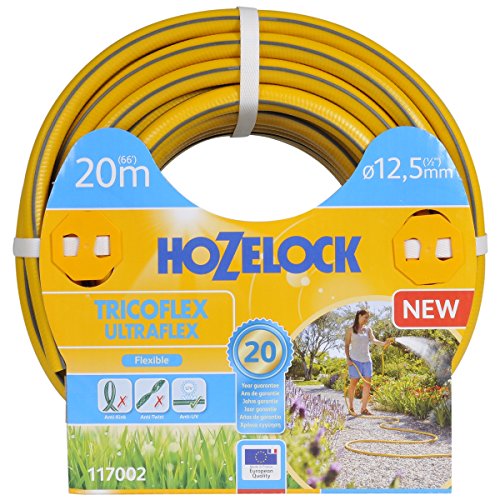
This is the hose I always recommend. It's not fancy, but it's tough and lasts for years.
Should you buy an expandable garden hose?
I think expandable hoses are perfect for patio plants. If you only have a kitchen garden or some containers on a patio, an expandable hose will save you a lot of space. However, if you have a larger yard with flowerbeds throughout, a traditional hose is much better suited to your space.
Garden hose FAQ
Can you repair an expandable hose?
Unfortunately, you can't repair an expandable hose. Once the inner is ripped, it cannot be patched, because any repair would rip again when the hose expands.
For more help with watering, take a look at our guide to fixing a garden hose, or our tips on maintaining a garden hose.
Sign up to the Homes & Gardens newsletter
Design expertise in your inbox – from inspiring decorating ideas and beautiful celebrity homes to practical gardening advice and shopping round-ups.

As a gardens and lifestyle contributor, Alex makes sure readers find the right information to help them make the best purchase. Alex got his start in reviewing at the iconic Good Housekeeping Institute, testing a wide range of household products and appliances. He then moved to BBC Gardeners’ World Magazine, assessing gardening tools, machinery, and wildlife products.
-
 These are the 6 things designers say you should never put in a small living room
These are the 6 things designers say you should never put in a small living roomThe items that should be banned from a small living room are right here along with what you should opt for instead
By Sarah Warwick
-
 I always get my small space storage from Wayfair – and these discounted $35 Martha Stewart storage boxes are the perfect fix for my tiny vanity
I always get my small space storage from Wayfair – and these discounted $35 Martha Stewart storage boxes are the perfect fix for my tiny vanityI'm going vertical for tiny space storage success with this Early Way Day 2025 bargain
By Punteha van Terheyden
-
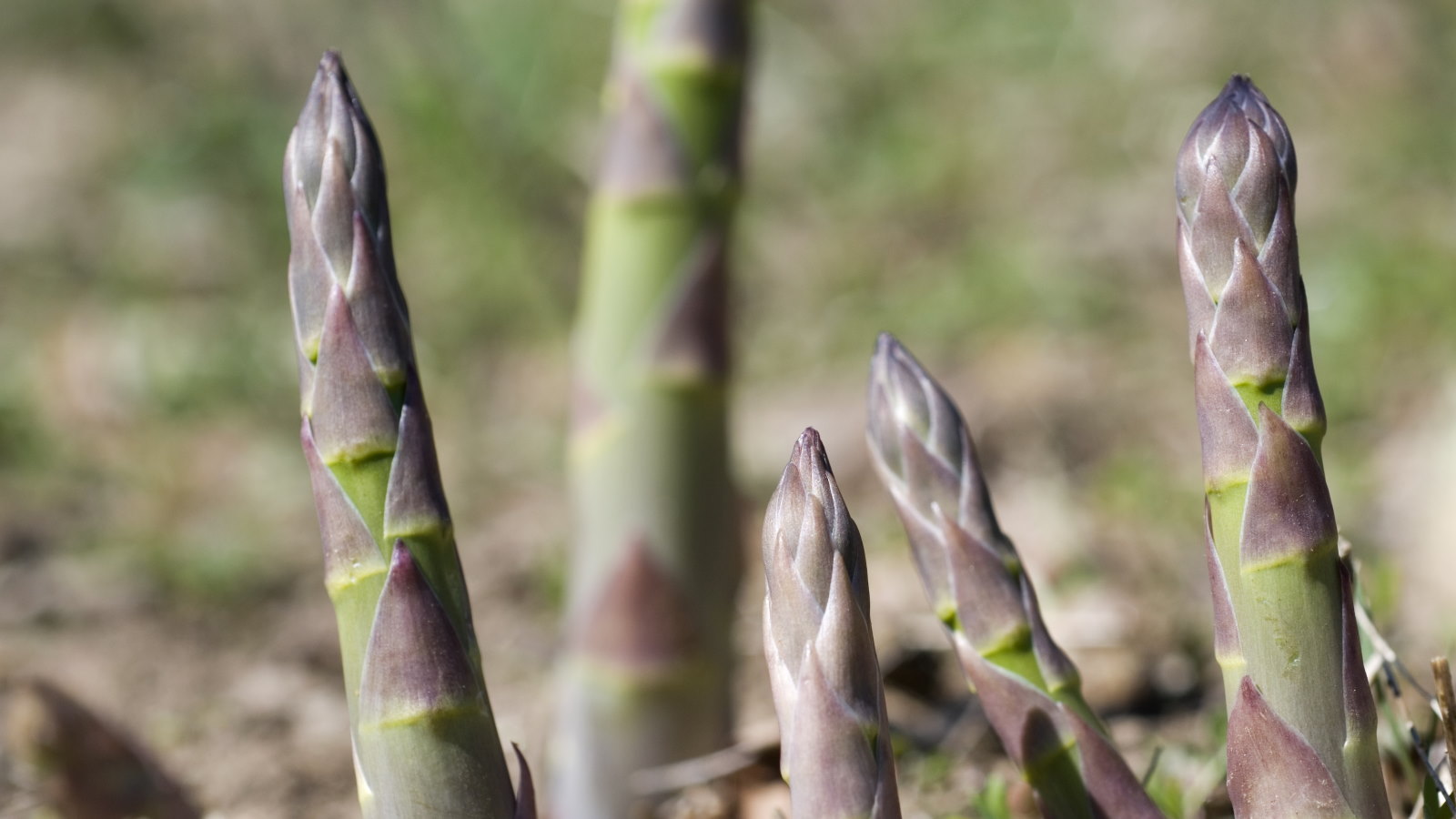 When and how to divide asparagus – expert tips to rejuvenate older plants for better yields
When and how to divide asparagus – expert tips to rejuvenate older plants for better yieldsDividing asparagus crowns is simple and rewarding, but you must get the timing right
By Drew Swainston
-
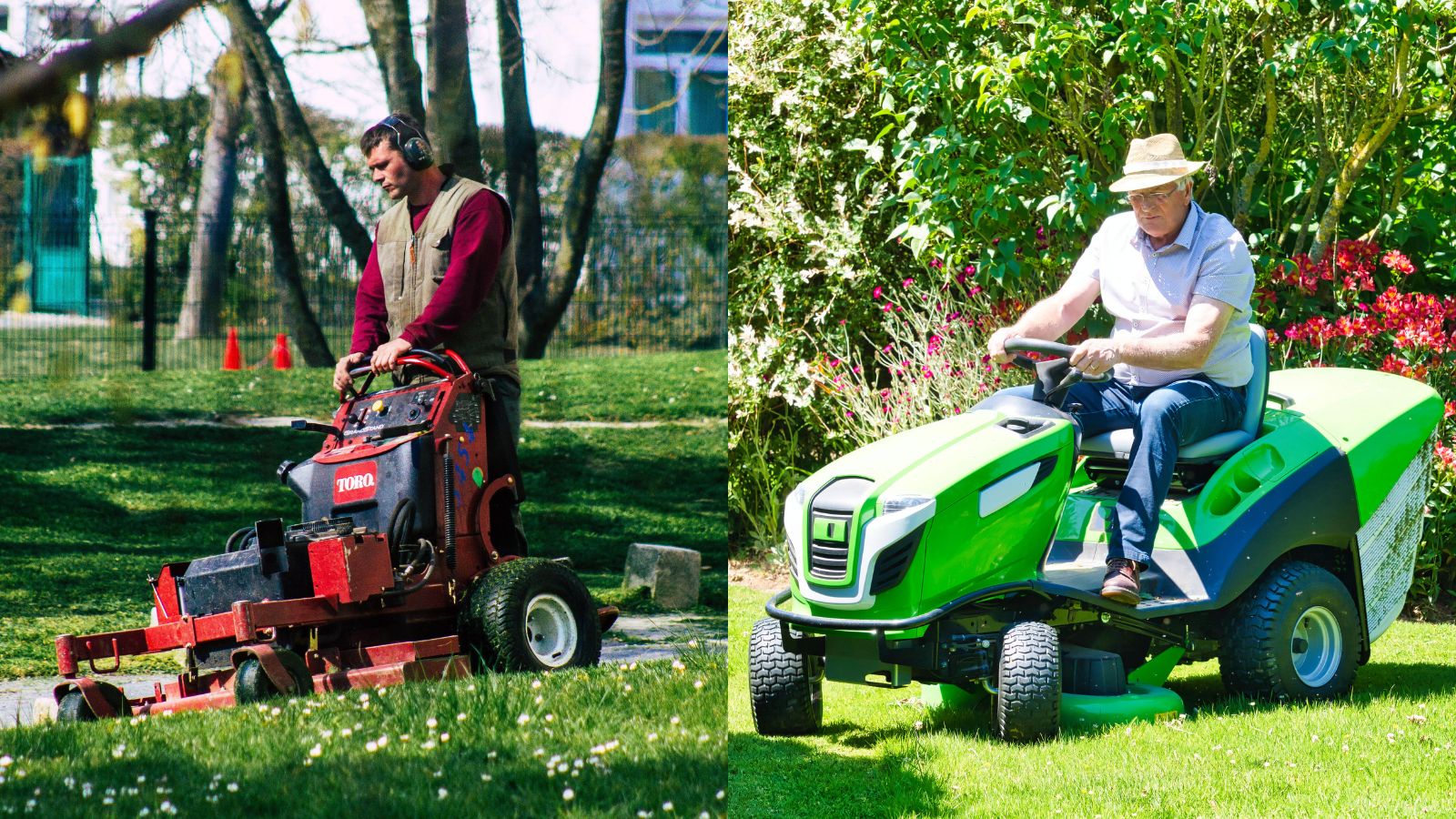 Standing mowers vs riding mowers – a mowing expert reveals which is best
Standing mowers vs riding mowers – a mowing expert reveals which is bestStanding mowers vs riding mowers is a heated debate among landscapers. I spoke to a landscaping expert to find out if standing mowers really are the best
By Alex David
-
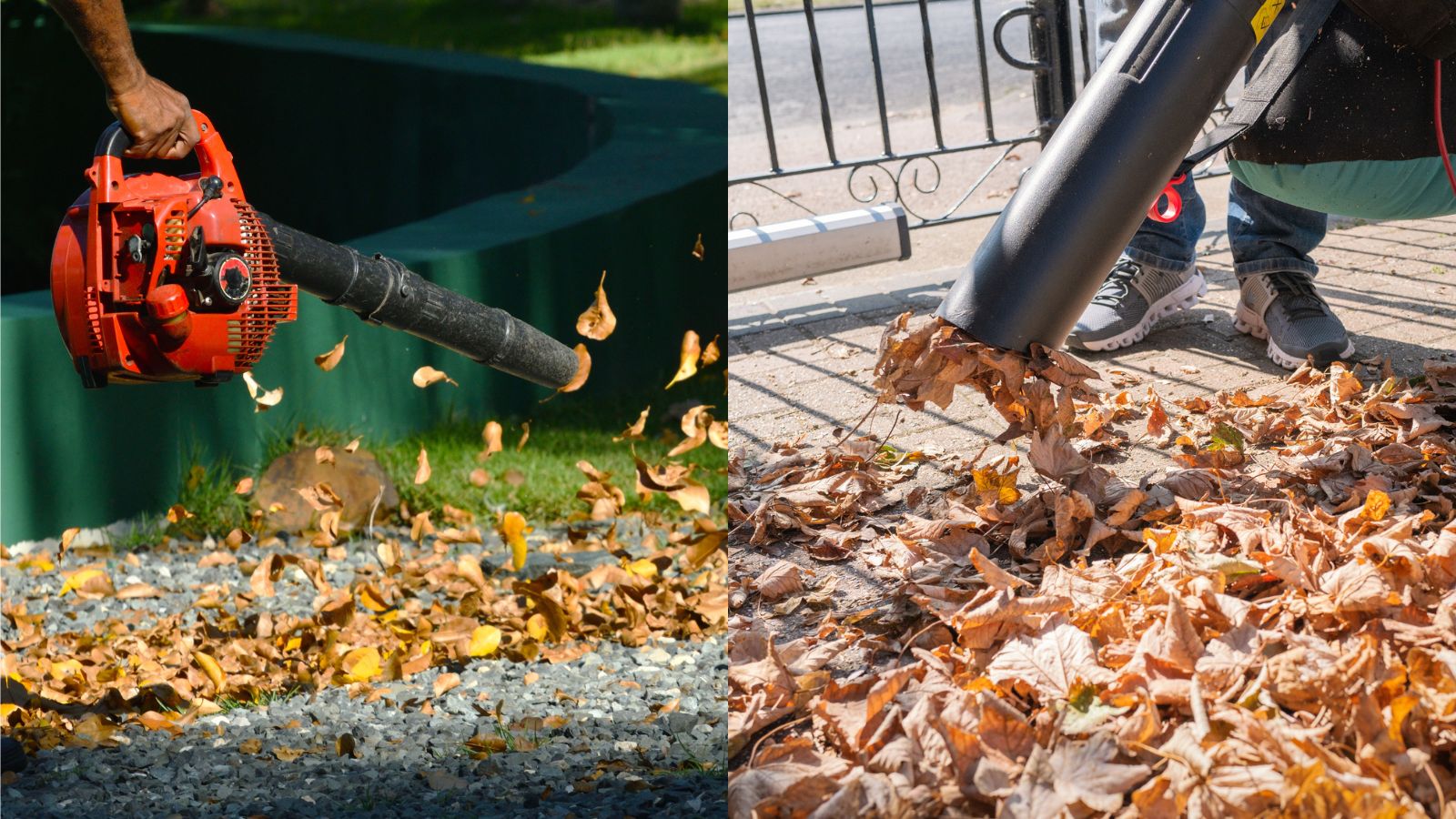 Leaf blowers vs leaf vacuums – which is best for your yard, and should you bother with either?
Leaf blowers vs leaf vacuums – which is best for your yard, and should you bother with either?It's not obvious which is best between leaf blowers v leaf vaccums. As a product tester, this is all you need to know about these controversial yard tools
By Alex David
-
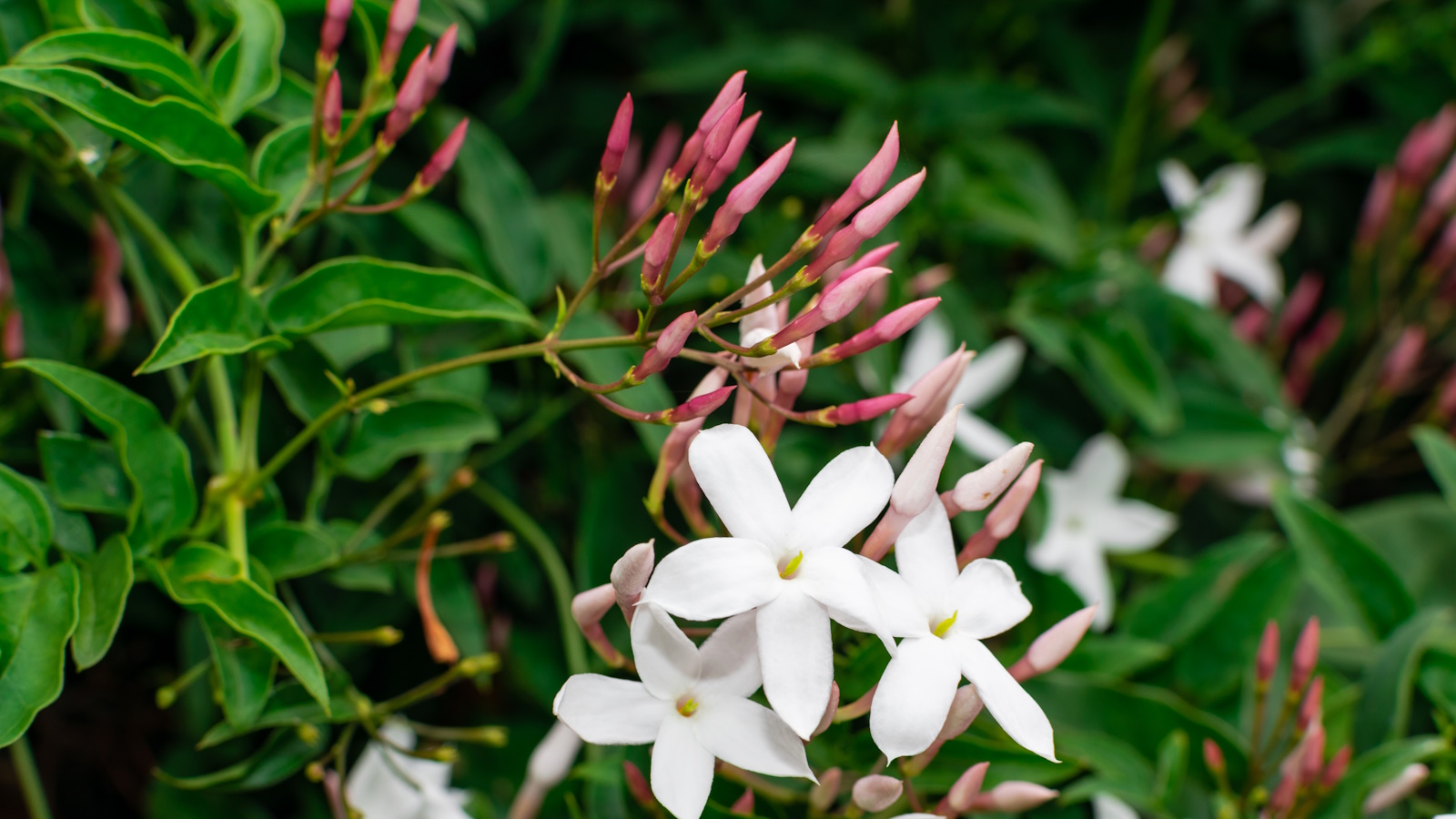 Pruning jasmine in late summer will ensure your plants bloom better than ever next year
Pruning jasmine in late summer will ensure your plants bloom better than ever next yearTiming is critical when pruning summer-flowering climbers
By Thomas Rutter
-
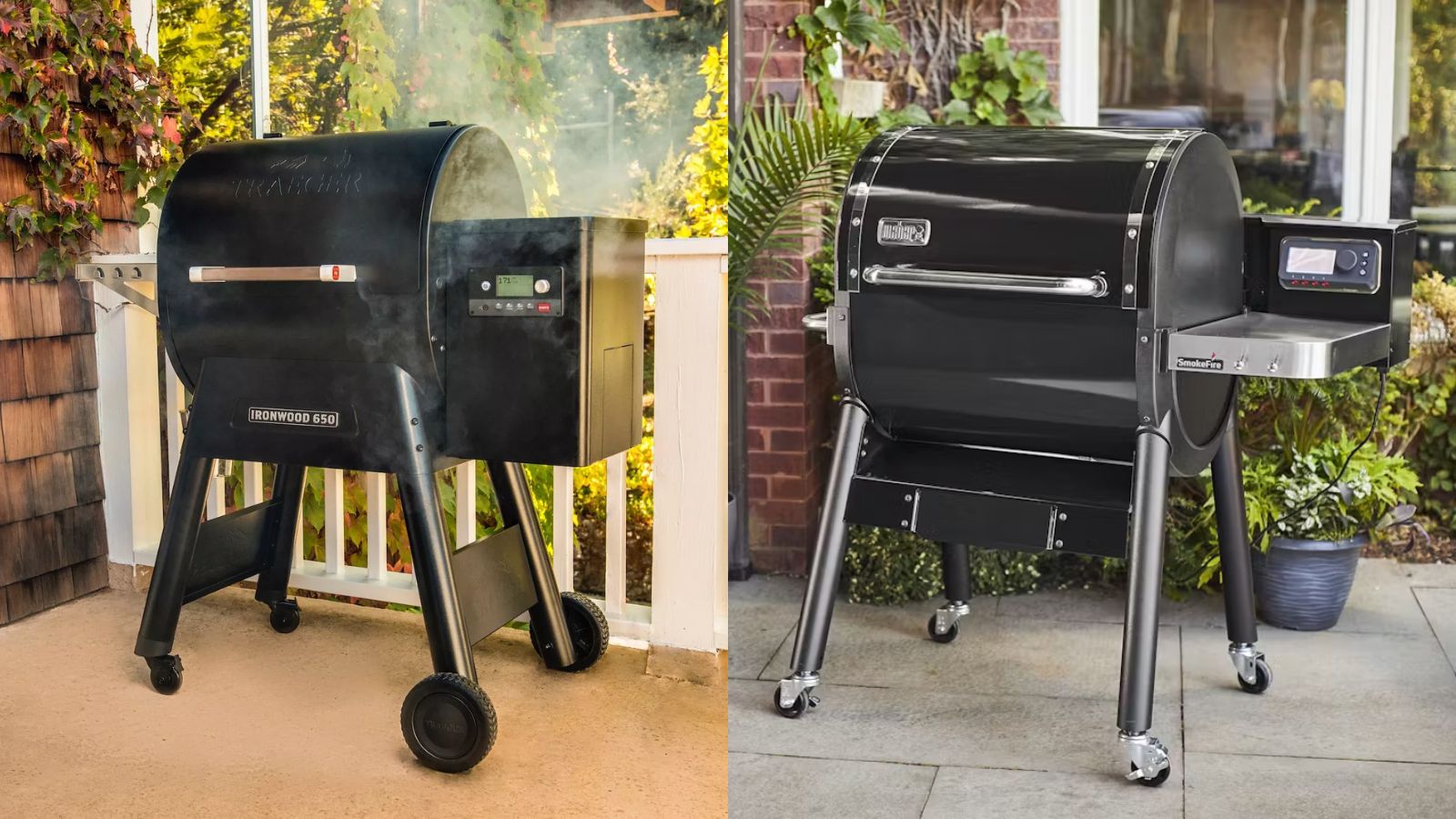 Weber vs Traeger – which pellet grill should I buy? Advice from a product tester
Weber vs Traeger – which pellet grill should I buy? Advice from a product testerThey're two titans of the grilling game, but who comes out on top between Weber vs Traeger? As a product tester, this is all you need to know about the brands
By Alex David
-
 Bougainvillea in miniature – with a little patience, anyone can grow these vibrant plants in bonsai form
Bougainvillea in miniature – with a little patience, anyone can grow these vibrant plants in bonsai formGrowing bougainvillea bonsai trees can add impact to even the smallest of spaces
By Thomas Rutter
-
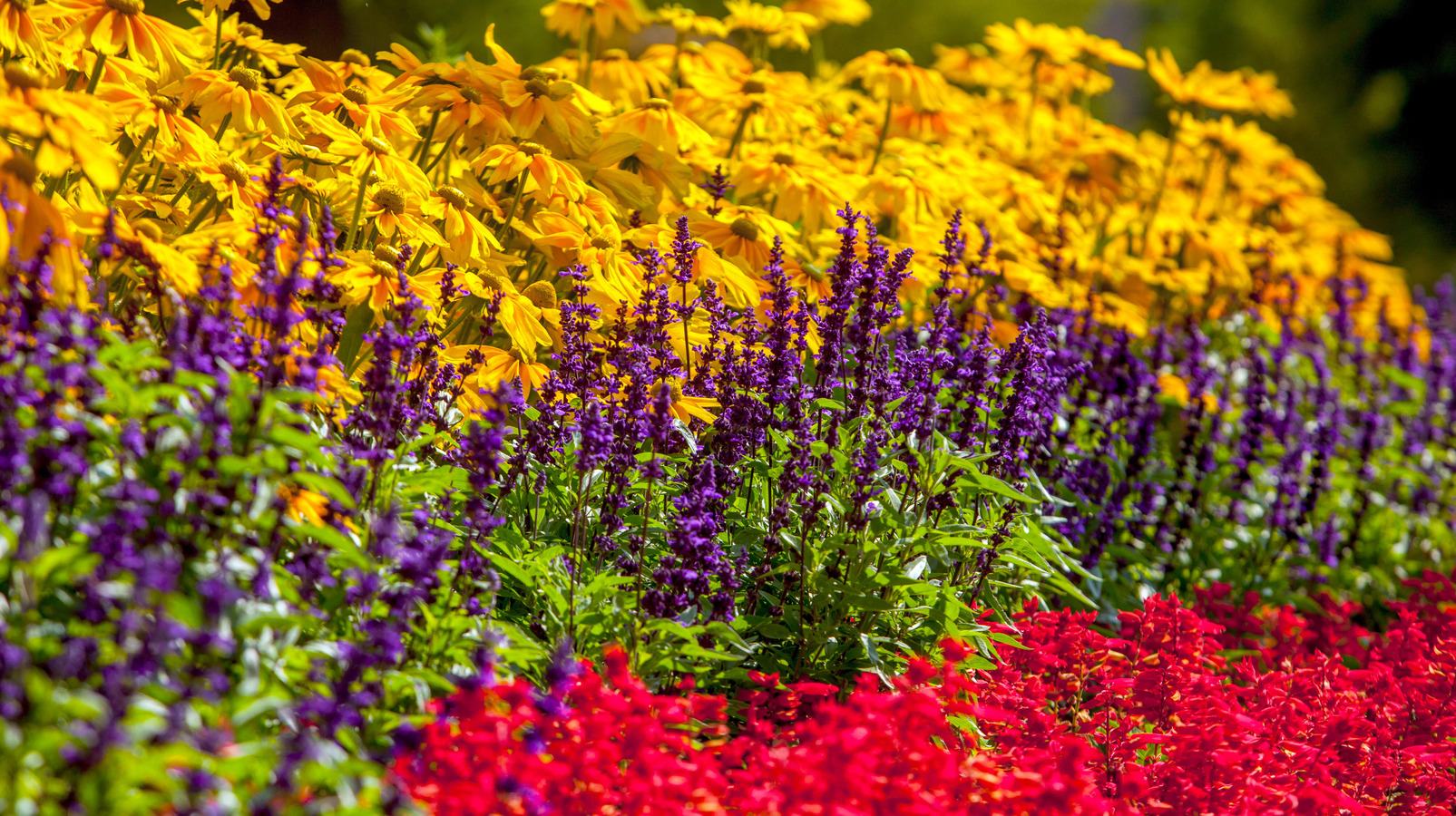 10 low maintenance, drought tolerant plants – for a beautiful and undemanding landscape
10 low maintenance, drought tolerant plants – for a beautiful and undemanding landscapeExpert plant picks for a thriving dry garden, that will make life easier and more colorful
By Jacky Parker
-
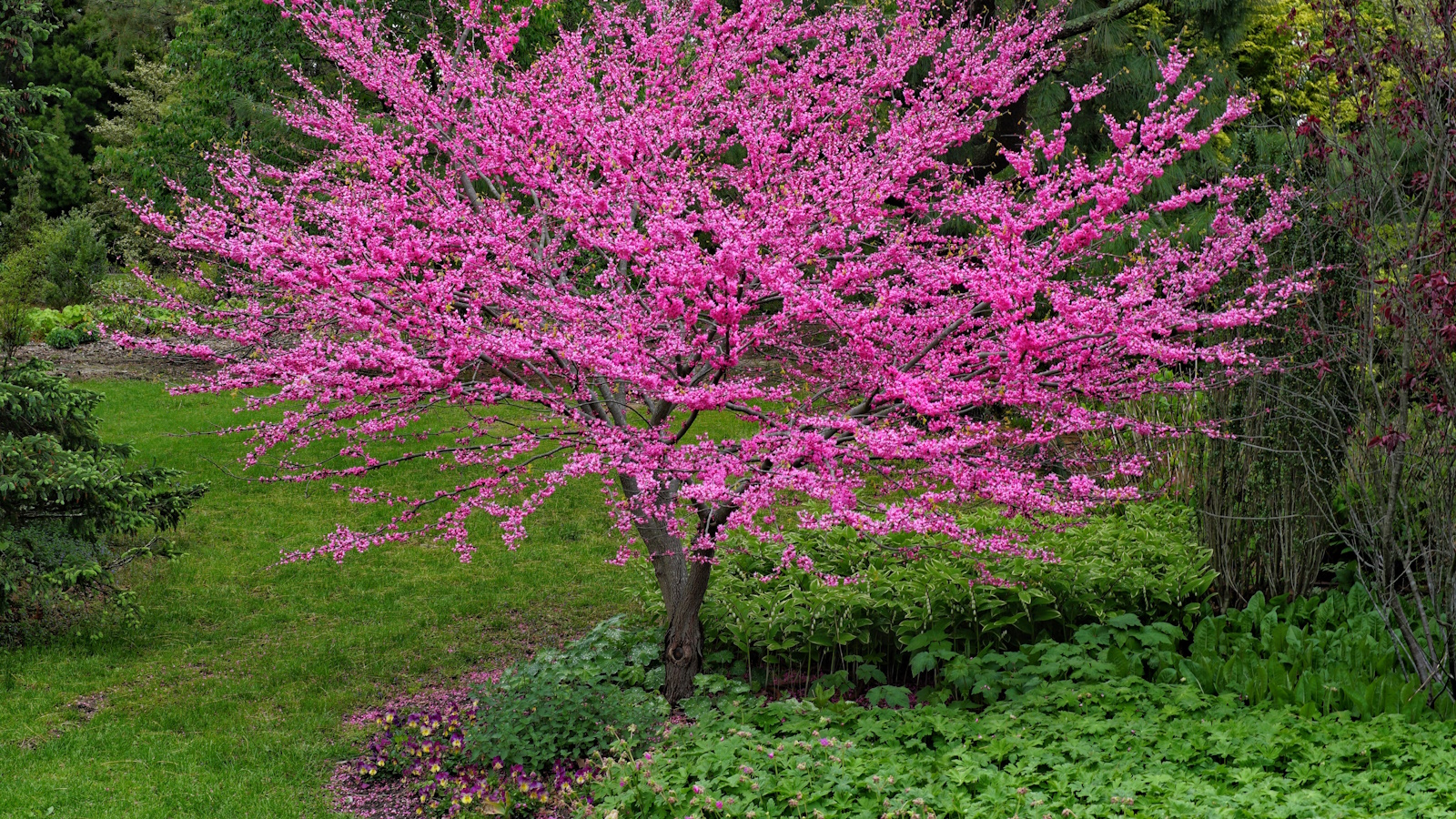 How to grow eastern redbuds – the cherished native tree with striking spring blooms
How to grow eastern redbuds – the cherished native tree with striking spring bloomsAdaptable and reliable, eastern redbuds are tough trees that will not disappoint
By Thomas Rutter
